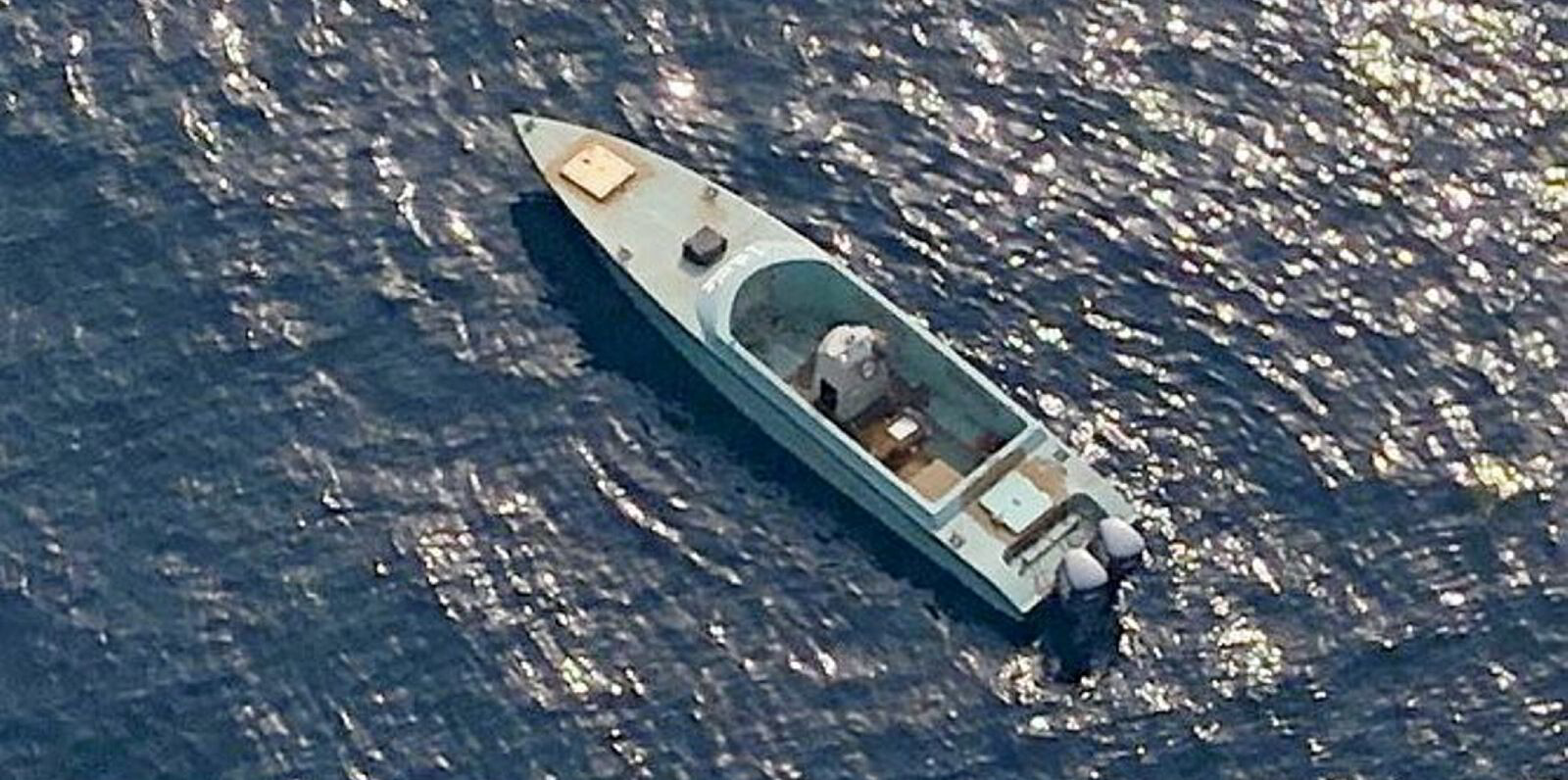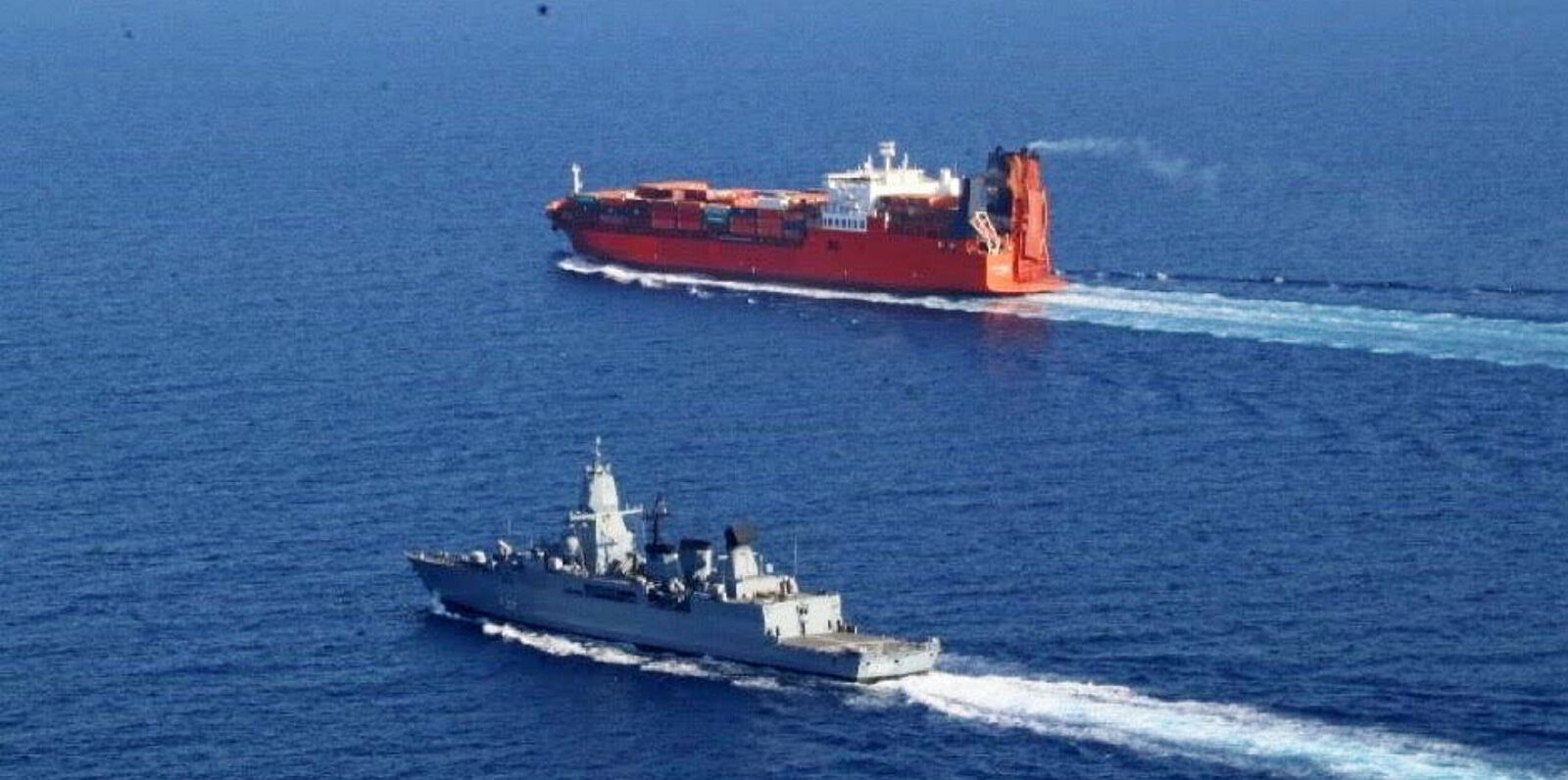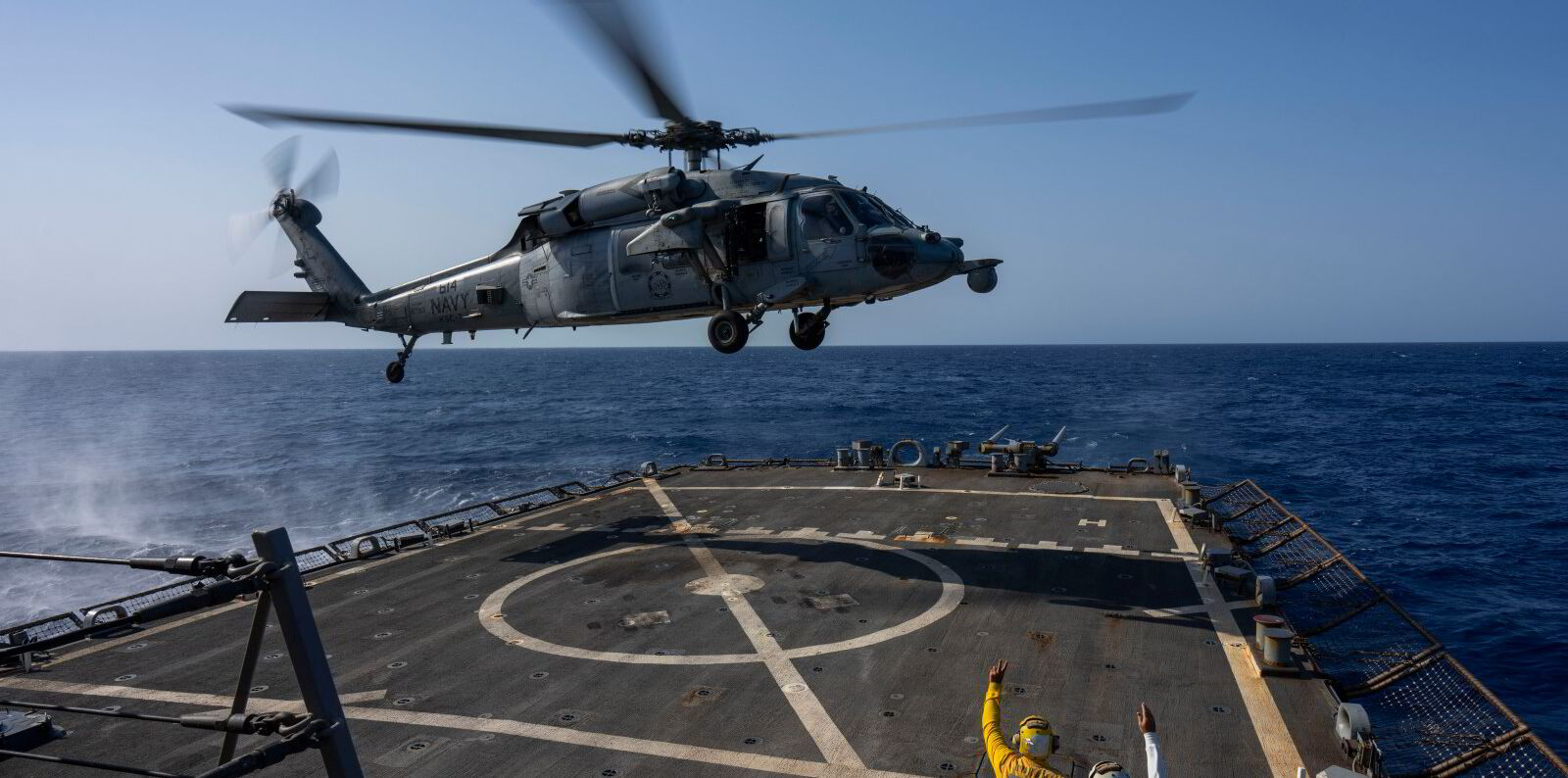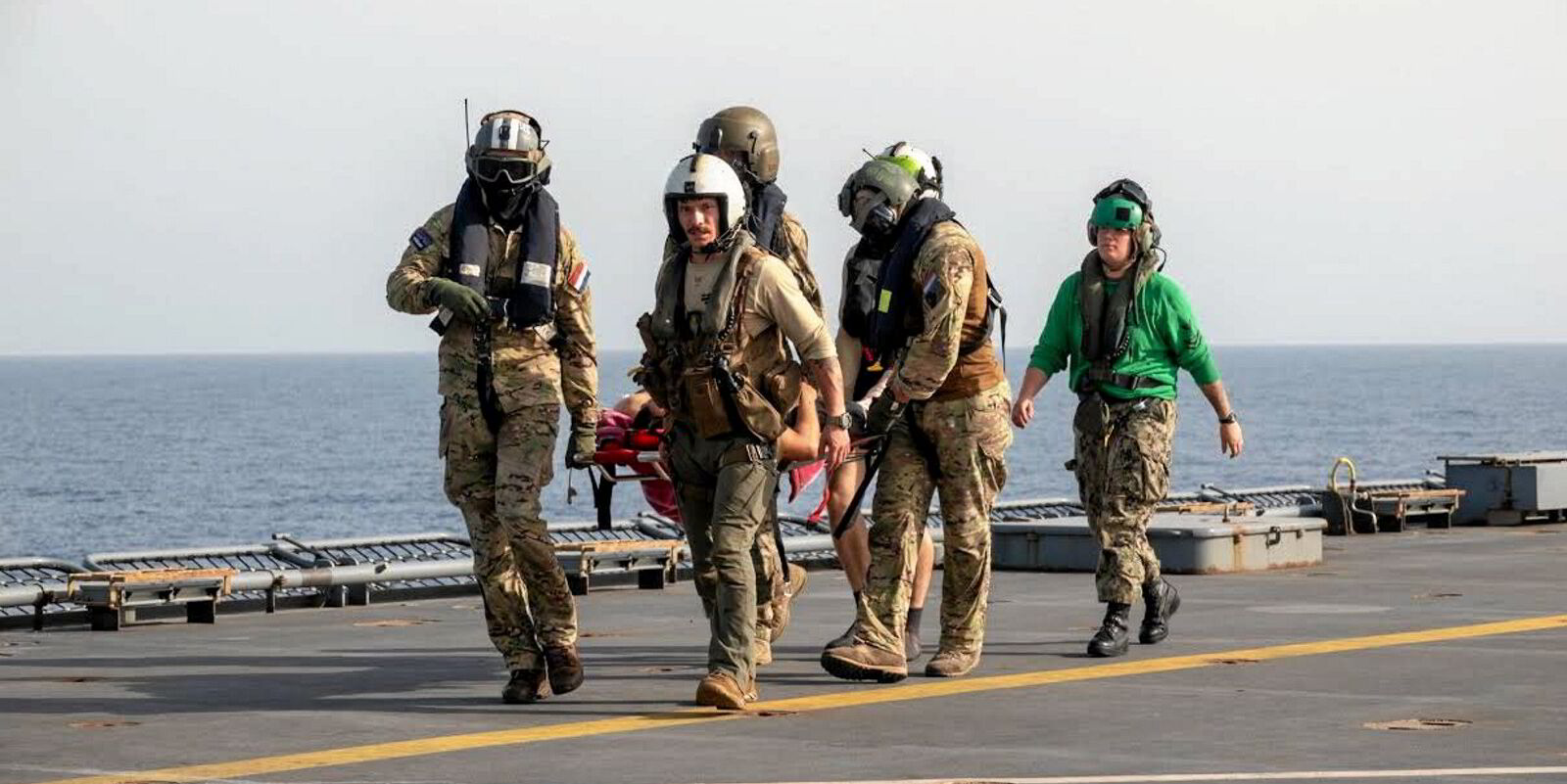Some maritime security professionals believe it is time to equip merchant vessels with armed guards who are ready to fire on Houthi sea drones.
The advice comes after the Yemen-based militant group carried out its first successful attack with a sea drone on Wednesday, killing a seafarer and leading the remaining crew on Evalend Shipping’s 82,000-dwt bulker Tutor (built 2022) to abandon ship two days later.
Maritime security firm Ambrey Analytics said in a threat circular on Friday that private armed security teams, sometimes referred to as PAST, should be considered when ships transit the Red Sea and Gulf of Aden, where the Houthis have been menacing shipping and expanding their target list.
Those teams should be ready to fire on these floating weapons for some vessels, the firm said.
“For those assessed to be at heightened risk, an increased team size should be considered and the PAST ought to be equipped to destroy RC-WBIEDs and USVs, whilst at all times following rules for the use of force,” Ambrey wrote, using the abbreviations for sea drones known as remote-controlled waterborne improvised explosive devices and unmanned surface vehicles.
Will Watson, a Washington DC-based maritime security consultant, agrees.
He told TradeWinds that, unlike rockets or missiles, drones move more slowly and are targets that can be fired upon.
“Most of the attacks so far have been by rockets or missiles. Now that it looks like drones are more in play, that’s a viable defence,” he said.

The fact that Somali piracy has resurfaced also supports the use of armed security teams, he said.
But IR Consilium chief executive Ian Ralby, an expert in maritime security and law, is not convinced of the “wisdom, utility or practicality” of using armed security to thwart the Houthi threat.
He said traffic through the Red Sea is down 70%, and he doubts that guards would be effective, given the other weapons in the Houthi arsenal.
“This is a non-state actor, and we’re really in a weird position where the use of another non-state actor, in the form of private security, I don’t think actually stands much of a chance against this multidimensional threat,” he said.
If vessels do transit the area, they could protect crew with armed guards, the best available firefighting equipment and multiple satellite phones.
But Ralby’s main advice for shipping is to avoid the area altogether.
“This is an increasingly difficult operating environment. It’s getting worse by the hour,” he said.
Ambrey said the attack on the Tutor, which was drifting in the Red Sea on Friday after the evacuation of the crew, involved a remote-controlled waterborne improvised explosive device that was a five to seven–metre white-hulled boat.
It resembled a Yemeni fishing vessel, with two dummies on board to resemble people.
“The use of dummies was significant. This modus operandi has been seen before,” the firm said. “This can disguise the nature of the threat and can draw defensive fire toward the ‘operator’.”
While in previous incidents operators of such drones have been in nearby skiffs, a second vessel was not reported in the Tutor attack, and Ambrey said the Houthis have shown the capability to operate sea drones using a video feed and GPS.
“It is assessed possible that this was controlled remotely from land,” the firm said.
Ambrey also recommended that ships undergo a thorough affiliation check for any voyage in the region, including the Arabian Sea, Gulf of Oman, Middle East Gulf and the Indian Ocean.

High-risk vessels should reconsider the voyage, which could involve rerouting, the firm said.
Ships that make the transit should designate a safe muster point well above the waterline and centralised within the accommodation block, where crew can keep as far away from external walls as possible.
Transmission by automatic information system transponders should be stopped in the face of any suspicious activity.
“Irregular and frequent course and speed alterations also are assessed to reduce the likelihood of damage,” the firm said. “All deck movements should be halted where possible when transiting heightened-risk areas. Bridge manning should be reduced to a minimum.”
Watson said that whether to avoid the Red Sea and Gulf of Aden is a complex question that shipowners, charterers, operators and insurance underwriters have to answer.
But he said it may be time for a return to the use of military-protected convoys that were prevalent during the height of the previous wave of Somali piracy, a tactic that was employed because those attacks did not lead ships to reroute.
“Everybody involved in the industry should continue to urge Western navies to provide as much cover as they can,” he said.





